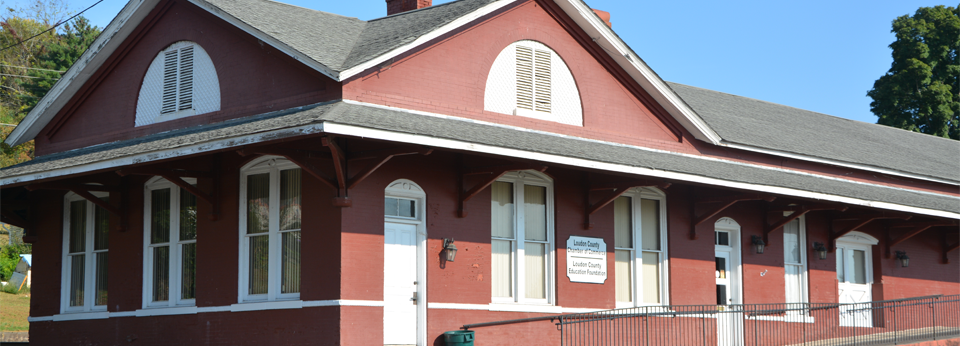
Transportation
Ferries
The Blair family was one of the first families to settle at what is now Loudon, arriving sometime in the 1790s. James Blair (1777–1826)— whose brother-in-law John Hudson Carmichael had established the Carmichael Inn in 1810— was granted permission to operate a ferry along the river in 1817.[4] The small community that grew up around the ferry thus became known as "Blair's Ferry." The community grew slowly, for while it was in a location well-suited for river traffic, most river trade was local, since various river obstacles (such as Muscle Shoals) isolated the Upper Tennessee River from the great ports along the Mississippi River for all but a few months each year. In 1830, the state government funded dredging projects that made the river navigable from Knoxville to Decatur, Alabama (at the head of Muscle Shoals), bringing increased river traffic to Blair's Ferry.[5]
BLAIR v CARMICHAEL
Knoxville July 1829
Ferries- Jurisdiction-Discretion The county court has a latitude of discretion in the exercise of its jurisdiction in establishing continuing and discontinuing ferries subject to the appellate jurisdiction of the circuit court and of this court.
Same -Interference with old ferry--It is no objection to an order establishing a ferry that the party complaining has a ferry within four hundred yards of the other on one side of the river and with the same landing on the opposite bank or that the new ferry, owing to the swiftness of water and greater length of passage will be of less public benefit.
Opinion of the court delivered by Judge Whyte
Blair obtained an order of the county court for the establishment of a ferry across the Tennessee river in 1817. He states he hath held the ferry ever since that time, keeping up good boats, and giving due attendance; that on the first establishment of the ferry it was of little value, but of late years has become valuable. In 1827, Carmichael obtained, by applying to the court, an order for a ferry also near Blair's ferry. Blair lives on the south side of the river, owning the land there, and also the land opposite on the north side, where his landing is. Carmichael owns the land on the north side of the river, a little below Blair's landing, on that side and also lives on the same side.
A public road on the north side of the river runs through Carmichael's land, passing by his dwelling house to the river at his landing, then runs up the river 300 or 400 yards to Blair's landing; that the width of the river at Blair's ferry is somewhat less than at Carmichael's landing on the north side, and the water is better, running slower. There is no landing on the south side of the river opposite to Carmichael's landing on the north, his boat being obliged to go up the river to Blair's landing on the south side for his landing, so that the diagonal course of Carmichael's boat to the south landing, whether performed in a straight or circuitous line, is of necessity longer than that of Blair's in making a passage over the river. Blair, by certiorari, brought up the question on Carmiehael's order to the circuit court where the order of the county court was affirmed and an appeal taken to this court.
For the defendant, Carmichael, it is contended, that the jurisdiction of the county court is exclusive. We are of opinion that the legislature having given to the county courts the jurisdiction of establishing, continuing, and discontinuing roads and ferries, within their respective counties have thereby considered them the best qualified for the exercise of the powers so conferred. Their local residence presumes a knowledge of the public interest in these matters in general, and as having the best means of acquiring information upon, and examining the merits of the respective applications that may be made to them on the subject. It might perhaps have been the original intention of the legislature that this jurisdiction in the county courts should be exclusive. Be that as it may, the superior courts of this state, and after them the circuit courts, have undertaken to control the exercise of their power on this jurisdiction, in some particular instances, and this court the jurisdiction being settled has the right of examining the judgment of the circuit court, and consequently the decision of the county court. In doing so this court as a revising tribunal, must not forget the latitude of discretion nccessarily bestowed on the county courts in the exercise of this jurisdiction by them, and the superior means possessed by them for the correct exercise of it, compared to what this court may be reasonably supposed to possess. This court however is able to distinguish between a reasonable exercise of jurisdiction and such an exercise as might be considered a gross departure from it, in this last case the corrective powers of this court would be called into action. Is the case now presented to this court of this kind upon its circumstances? The plaintiff, Blair contends it is, and raises the following objections to Carmichael's order: 1st That he, Blair, has the oldest established ferry. As to this objection it is to be observed, that the policy of the law respecting ferries has changed much since the act of 1764, ch 3 sec 4, which enacts that if any person not empowered to keep a ferry transports another person for pay, within ten miles of a ferry on the river, he shall forfeit and pay to the nearest ferryman twenty shillings to be recovered by warrant etc. The monopolizing spirit of this act was broken by the act of 1784, ch 14, by declaring a more liberal policy. It enacts that, from time to time, and at all times hereafter, the courts of the several counties in this state, shall have full power and authority to appoint and settle ferries and to order the laying out public roads when necessary. The beneficial effects resulting from this change of policy introduced by the act of 1784, became so apparent and its advantages to the public so great, that the legislature again in 1807, felt themselves bound to interfere once more, and by another enactment to promote the still further extension of the policy, not giving a power only, but by enforcing its execution by imposing it as a duty. Thus the 25th chapter of that act of Assembly, sec 1 says, "that from and after the passing of this act, it shall be the duty of the several county courts in this state to authorize the owner or owners of ferry landings, or owners of land on each side of rivers where ferries have been established, or hereafter shall be to erect a ferry or ferries, under the same rules, etc, etc, and the said ferry keepers are hereby authorized to land their boats on the opposite banks of the rivers." And sec 2 says, "that where a public road crosses a river, and where the banks are owned by different persons, each person shall be authorized to keep a ferry and to allow the holder of the opposite bank free and uninterrupted privilege of landing his boat on either of the banks," etc. Thus we see that the uniform tendency of the acts of Assembly, subsequent to the act of 1764, is to countenance the free and liberal spirit of laudable competition on the subjectmatter (274)of this cause. Indeed the last act of 1807 has carried it to its maximum and it is diflicult to suppose acase that is fair which would be out of its purview it clearly embraces the present.
Another objection of Blair is, that the establishment of Carmichael's ferry would by drawing oil a part of the emoluments from his ferry, be discouraging to his exertions and also render him less able to discharge his duty.
All experience is against this objection; every day's observation confutes it, and stands in opposition to its correctness. We find from the infirmity of human nature ,that security degenerates into sloth, and a want of stimulus is followed by carelessness and inattention. A powerful incentive, if not the best, to the faithful discharge of duty is interest and the endangered profits of a lucrative ferry give a more forcible present impulse than the future coercion of the bond given to the county court for performance.
Another objection is that Carmichael's ferry from swifter water and greater length of passage is of less public benefit. The answer to this objection is that the public will judge for themselves when they have their choice and if they choose the worse the blame is their own. The spirit, as well as the requisition of the acts of Assembly, is for them to have this choice (310) Let the judgment of the circuit court aflirming the order of the county court granting a ferry to Carmichael be afiirmed.
Judgment afiirmed.
(Source: Reports of Cases Argued and Determined in the Supreme Court of Tennessee, Volume 10, Tennessee. Supreme Court, William Wilcox Cooke, 1876, pp. 272-274)
Throughout the 1820s and early 1830s, Blair's Ferry was the subject of a lengthy court case. In 1819, taking advantage of a provision in the Calhoun Treaty, the Cherokee leader Pathkiller claimed a 640-acre reservation of land that included Blair's Ferry. Blair sued Pathkiller to regain title to the land. Although Blair died in 1826 and Pathkiller died the following year, Blair's sons John and Wiley continued to pursue the case against the Gardenhire family, to whom Pathkiller had sold the reservation.
In 1834, the court ruled that Pathkiller's sale of the land had made his reservation claim null and void, and title to the land was returned to the Blairs.[3][4] The Blair's Ferry Storehouse was constructed shortly after this legal victory to take advantage of the growing river trade. The storehouse's builder is unknown, but some sources suggest a local entrepreneur named James H. Johnston (an associate of the Blairs), who operated a general store at the storehouse until the 1860s.[3]
Bussell Ferry from Lenoir City to Bussell Island (1935 map)
Hall Ferry from Bucktown, just below Lenoir City to Hall Bend
Huffs Ferry half a mile northwest of Loudon Loudon County and 5 miles by river below Southern Railway bridge over Tennessee River at Loudon
Jackson Ferry, near Greenback
Leaper Ferry Unitia (1895 map)
Lenoir Ferry just above Lenoir City (1895 map)
Morgantown Ferry
Tipton Ferry, just below Morgantown (1895 map)


